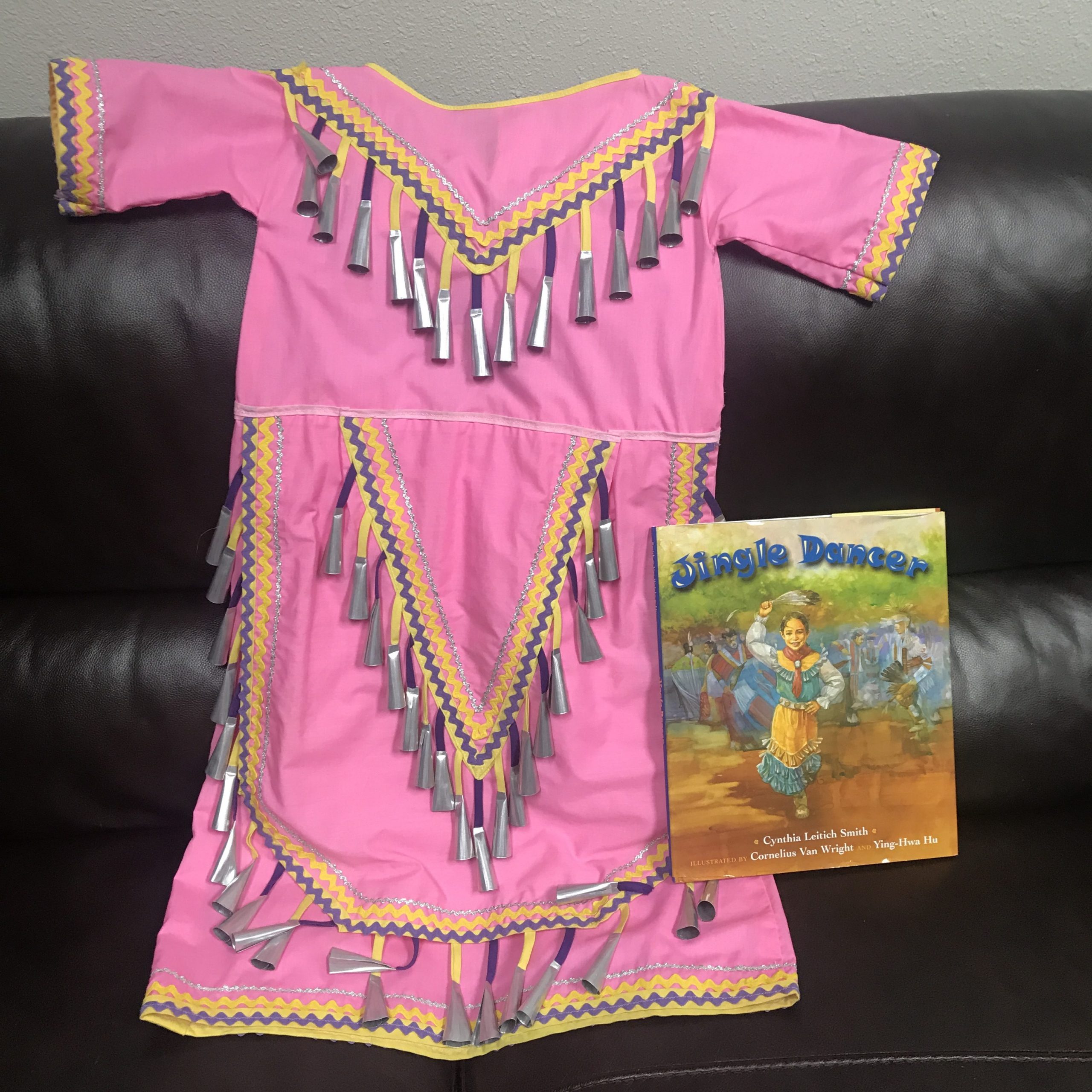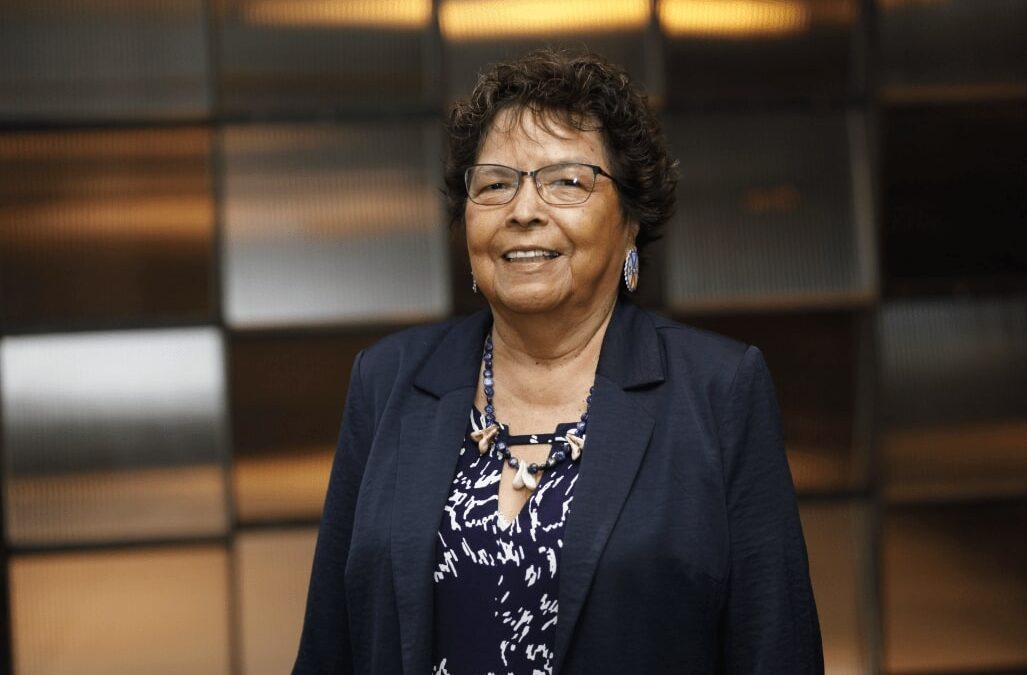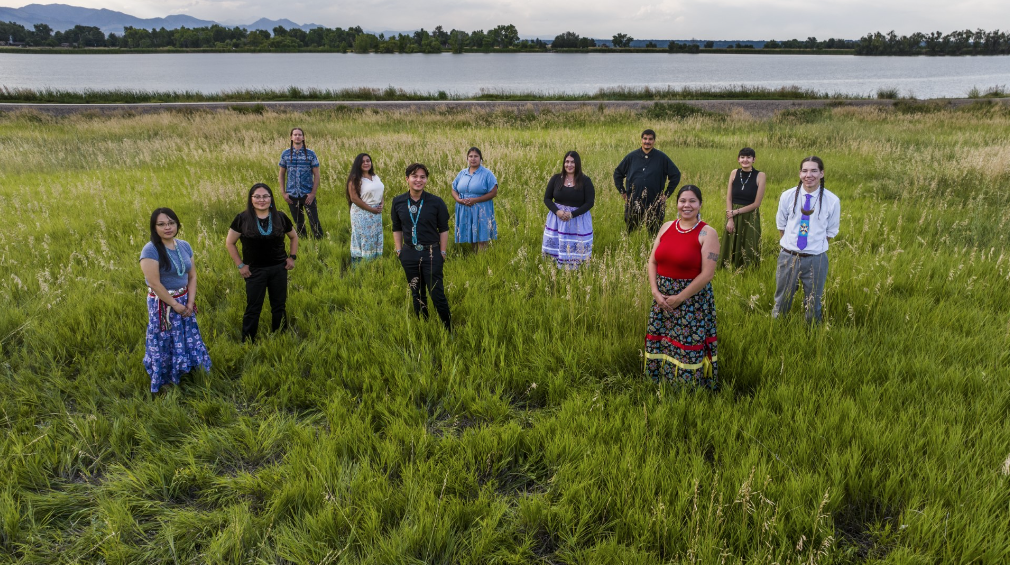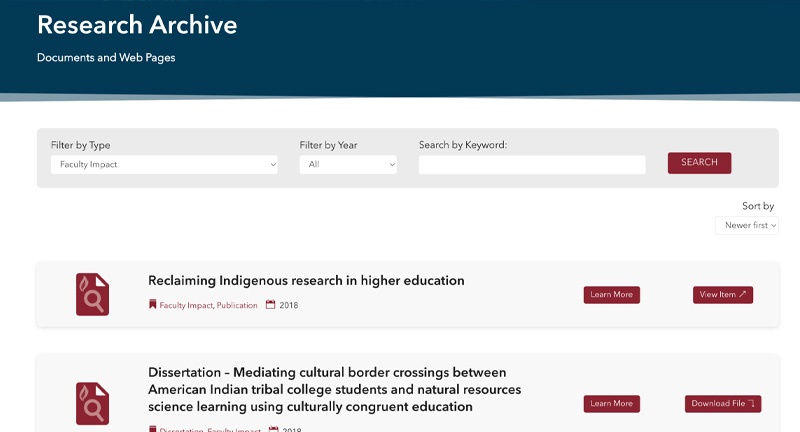By Amy Burland, Ed.D., Dean of the Salish Kootenai College Division of Education and Project Director for the Our People’s Timeline: Community STEM Education, Season by Season Project (OPT). The OPT is part of the For the Wisdom of the Children Initiative.
The backbone of a community-based program is taking into account the community’s needs. This happens by listening to people in the community who you hope to serve with your programming. When Salish Kootenai College (SKC) designed its early childhood STEM education project, every aspect of the program was designed around the Flathead Reservation communities’ needs. To identify what those needs were, we held community-based conversations with local educational agencies including the Confederated Salish and Kootenai Tribal Early Childhood Services (CS&KT ECS) and the Salish Kootenai College Early Learning Center (SKC ELC). Some of these conversations occurred organically and collaboratively through SKC’s early childhood education program. Others occurred at our quarterly meetings with CS&KT ECS and grant development meetings with our SKC ELC).
Standardized testing on the CS&KT Flathead Indian Reservation reveals achievement gaps in STEM subject areas and workforce data indicate that few Native Americans enter STEM related fields after graduation. Children’s early STEM experience encourages the development of self-belief in their STEM abilities and triggers an appreciation for science, technology, engineering, and mathematics and it value to everyday life. By providing high-quality, place-based, community centered STEM opportunities for young children on the Flathead Reservation we hope to nurture a lifelong interest in STEM fields and reduce learning gaps.
As we created the project, we were guided by the CS&KT Flathead Indian Reservation Se̓liš-Ql̓ispé (Salish-Pend d’Oreille) and Kasanka (Kootenai) Culture Committees in providing context for understanding Sqelixw (Salish and Pend d’Oreille) and Kasanka (Kootenai) worldviews and theory for STEM curriculum development. Their guidance informed us of culturally relevant content to embed into the best practices implemented in SKC early childhood STEM courses. Best practices in early childhood STEM education include providing opportunities for play-based, hands-on, open-ended experiences that are relevant to the child’s social and cultural contexts. Teachers serve as resources and guides as children engage, explore, experiment, and investigate STEM concepts in the early childhood classroom.
The primary goal of OPT is to enrich our early childhood degree programs by weaving culturally appropriate STEM curriculum throughout the content and methods courses taken by early childhood teacher candidates at SKC. These courses model and embed developmentally appropriate inquiry-based experiences and integrate structured and unstructured learning experiences rich in science, technology, engineering, and mathematics.

A jingle dress and the book “Jingle Dancer” used as teaching tools.
For example, early childhood teacher candidates enrolled in the fall quarter 300-level education course for teaching math in the early grades developed and taught inquiry-based mini-lessons in local kindergarten and first grade classrooms. A problem-solving lesson tied to math, storytelling, and cognition was introduced with the book Jingle Dancer by Cynthia Leitich Smith.
This lesson was designed to reinforce number sense in a culturally relevant context. Upon introducing the story with props that included the book, pictures of the main characters and a jingle dress, the teacher candidates posed questions to allow the young learners a chance to share what they knew about jingle dancers. The following are reflections from the teacher candidates after they finished teaching their lessons.
“I was pretty surprised that every student knew somebody who danced at pow wows. The students did a great job of remembering important points in the story and that helped lead into a connecting number talk. I didn’t expect the kids to easily remember the important points.”
–Kyler Rutz, SKC senior teacher candidate
“The students loved the book and a ton of students could relate to the little girl in the story. This helped a lot with their engagement once we began solving problems based on the storyline in the book. The problems we put on the board related to the rows of jingles Jenna needed. Students loved to model that problem or find the missing number in the equation on their rekenrek, and even come to the board to show their peers their thinking.”
–Ed Ness, SKC senior teacher candidate
These lessons illustrate how SKC teacher candidates are designing developmentally appropriate community-based STEM learning experiences for young children. The lessons teach young Native children not only the richness of their Indigenous culture, but how science and math inform their culture.
These lessons are just one component of the SKC OPT project that aims to bridge the revitalization of our Sqelixw (Se̓liš/Salish and Ql̓ispé/Pend d’Oreille) and Ksanka (Kootenai) cultures, values, and languages to the wealth of STEM and education-driven programs. The project makes resources available for our children, youth, parents, families, pre-service, and in-service teachers throughout the Flathead Reservation in Montana.










